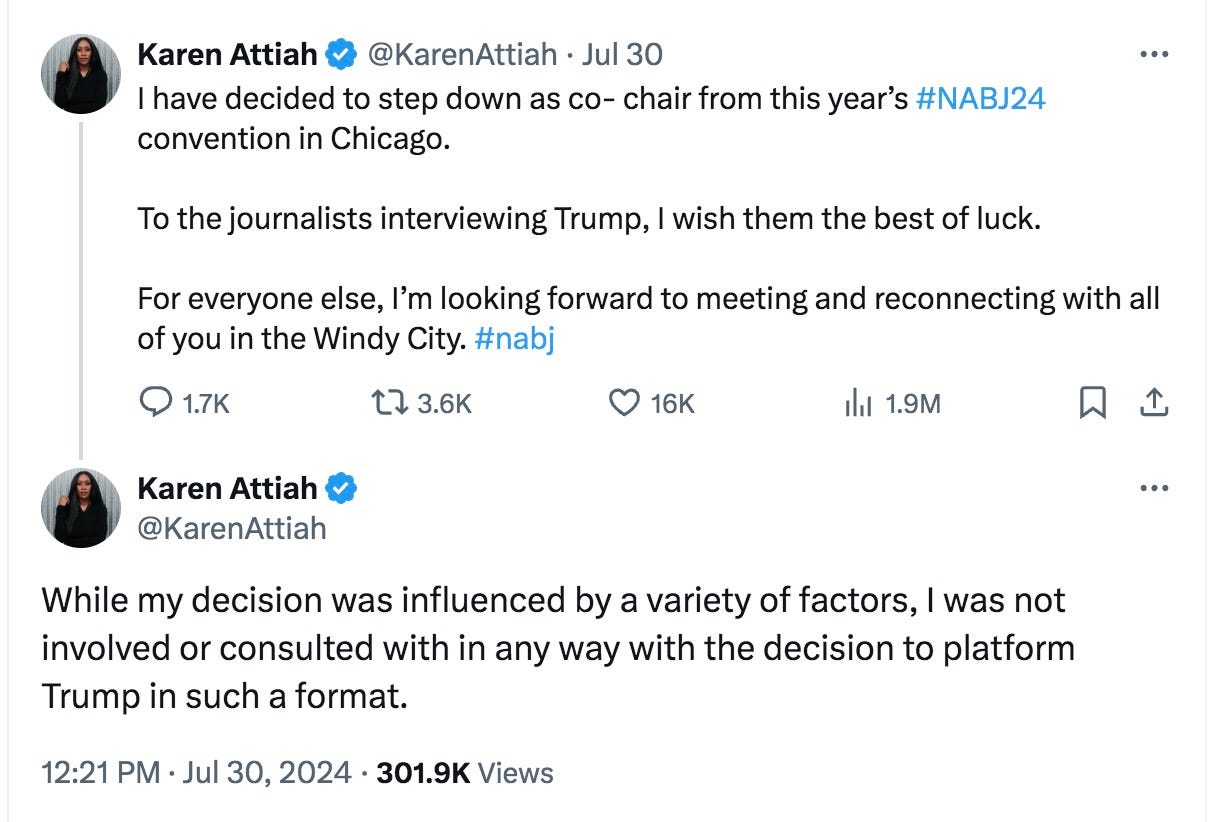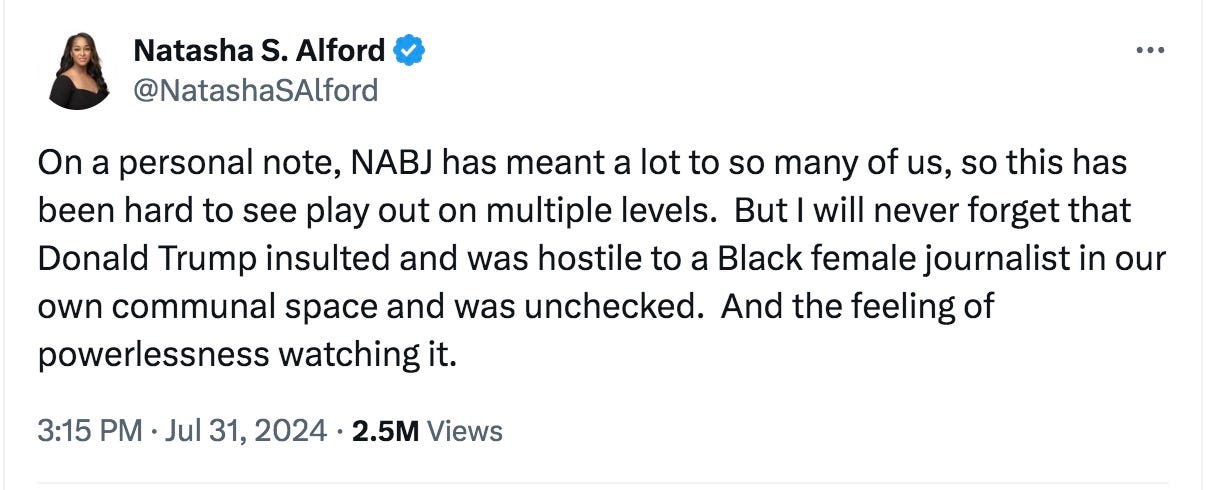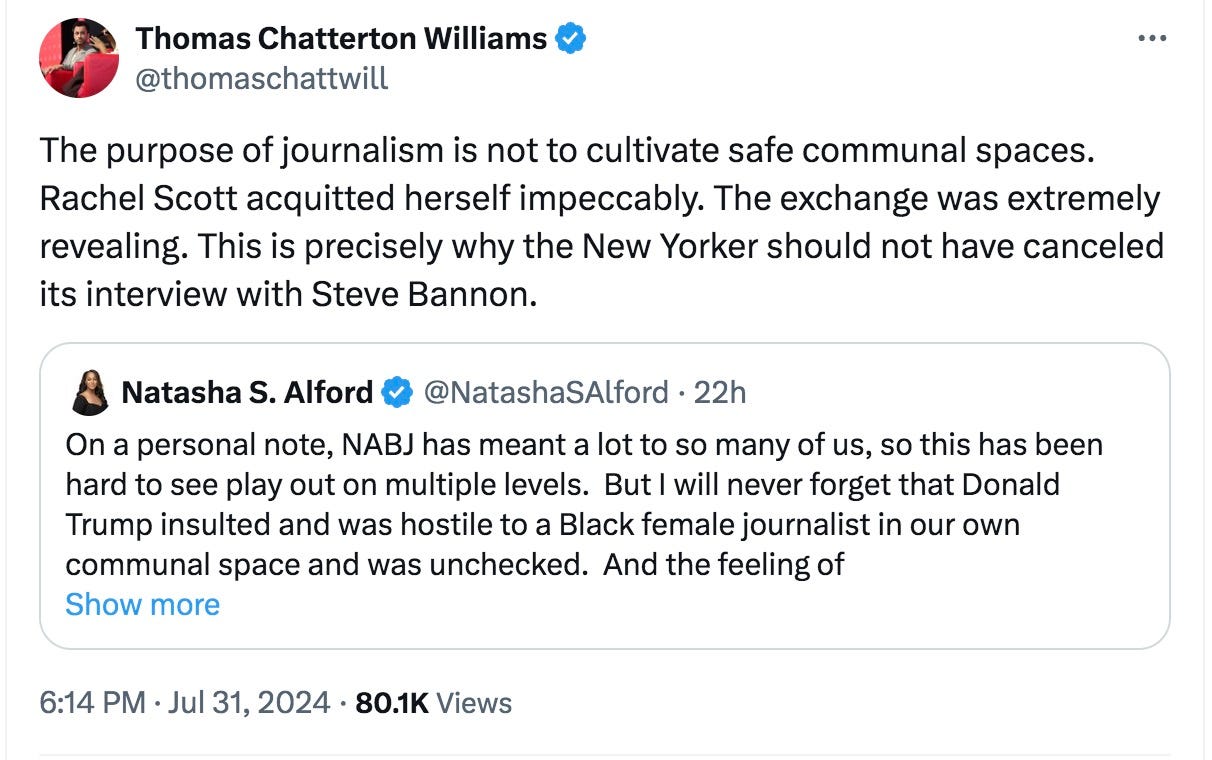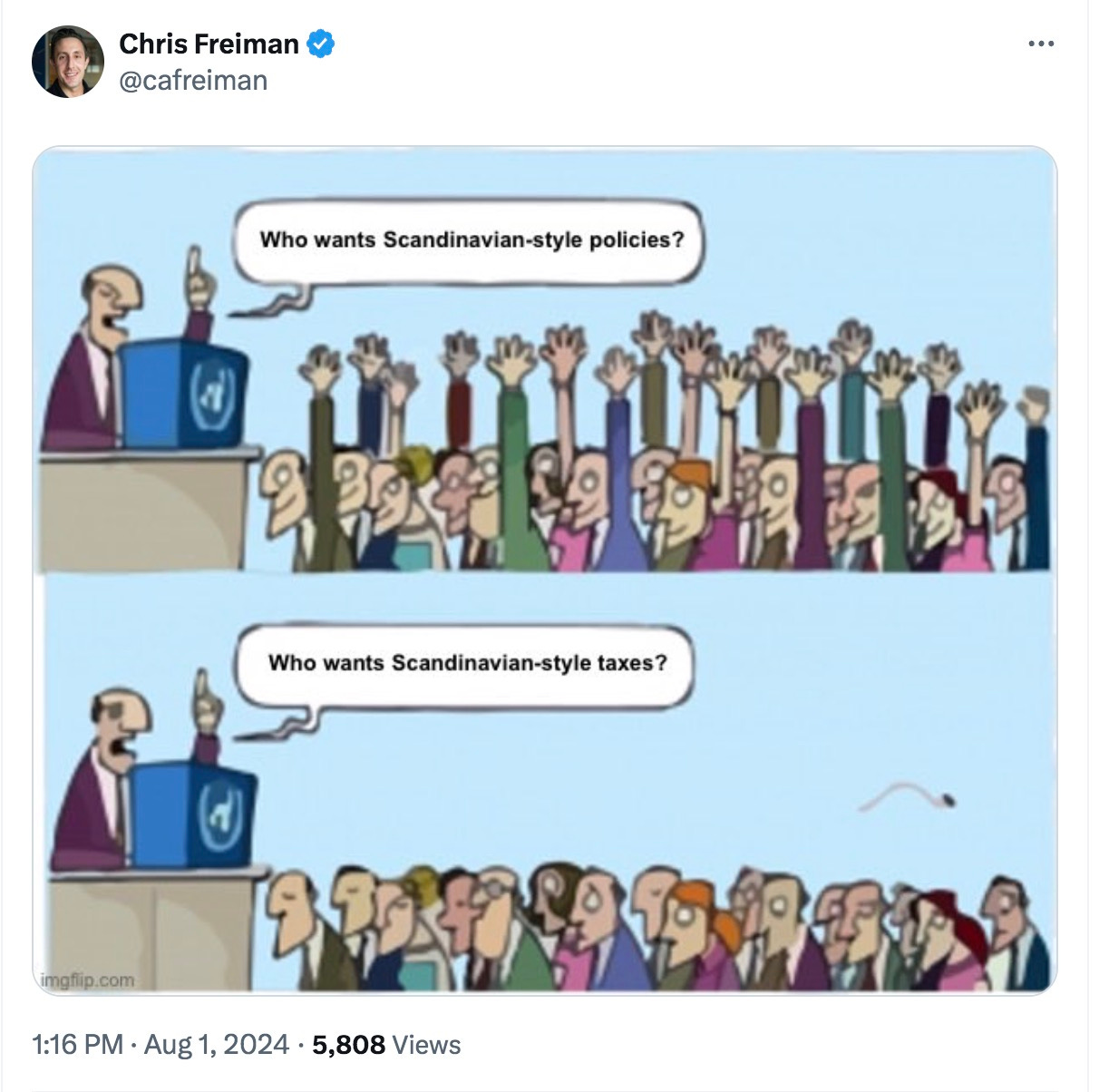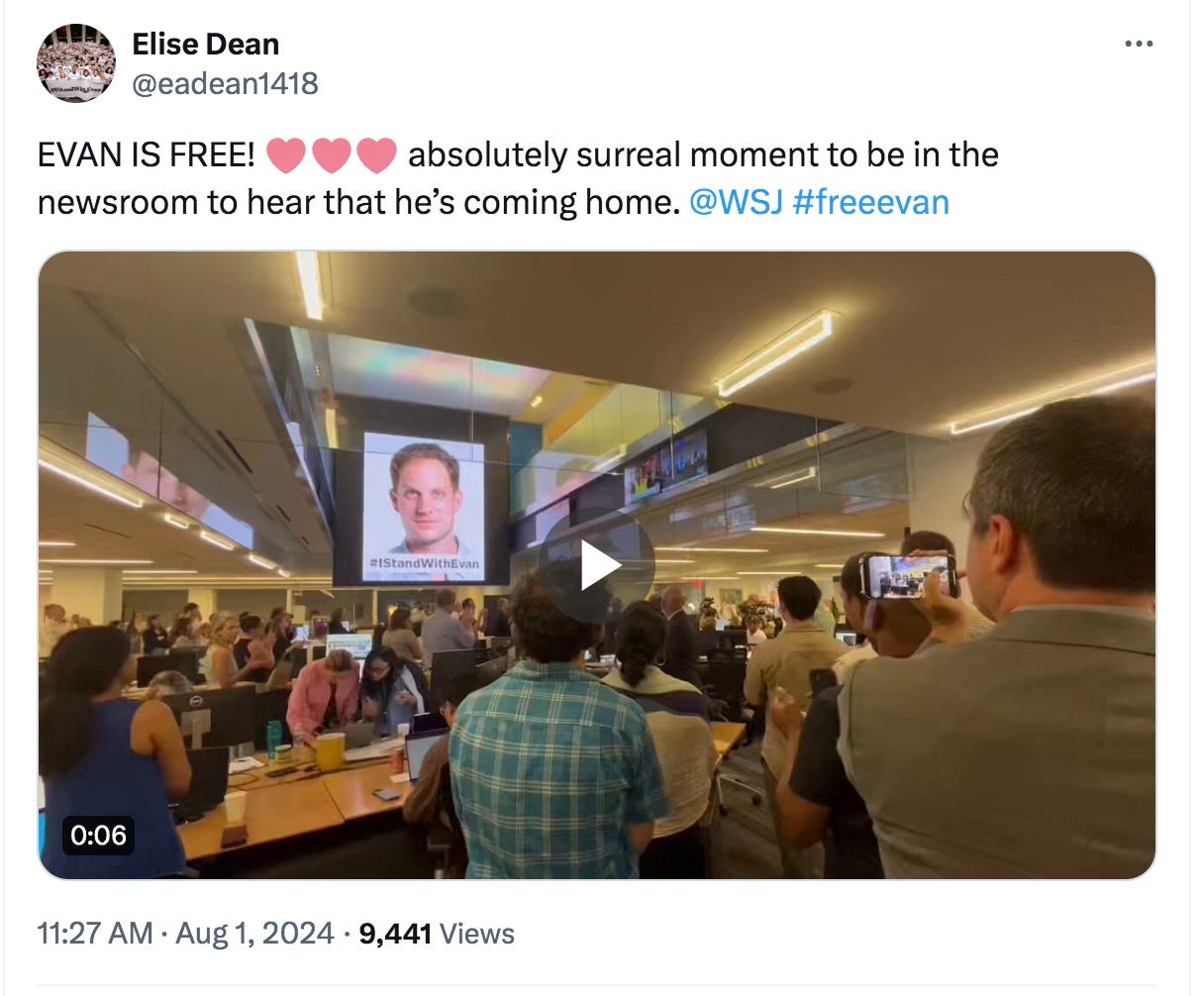E-Pluribus | August 1, 2024
Is diversity overrated?; Progressive Realism may be imaginary; and the University of Missouri tries to outmaneuver DEI opponents.
A round-up of the latest and best musings on the rise of illiberalism in the public discourse:
Jeffrey Polet: The Conservative Student on the Liberal Campus
Most of the discussion about “diversity” is about what type(s) of diversity are the best — it is taken for granted that diversity is good. But “good” for what? Jeffrey Polet takes something of a contrarian position for the Acton Institute and suggests that rather than assume the benefits of diversity, we should consider instead, “Who is better prepared for life after college?”
Institutions of higher education trace their interest in “diversity” back to the reforms of the civil rights era. These reforms rightly altered the composition of faculty and staff, allowing for women and minorities to enjoy opportunities that had been closed to them either by law or custom. It seems to me incontrovertible that most academic institutions were, in various ways, hostile to these groups and that the academy has improved as a result of their inclusion. But one should not expect any change to produce only salutary outcomes. Debates over affirmative action highlighted whether the interest in diversity should emphasize access or outcomes, and those debates occluded ways in which the interest in diversity expanded into an ideological program. Combined with other factors, the “diversity” interest became a fig leaf for instituting in both the curriculum and the administrative structure a whole set of progressive assumptions and reforms.
Whatever else is true of the “diversity, equity, and inclusion” (DEI) complex, it is ideologically homogeneous and operates with the kind of self-evident conviction that makes criticism nearly impossible, if allowed at all. My own experience at a comparatively sane institution confirms the imperiousness of this ideology as it has penetrated every nook and cranny of the academy and subjected heterodox opinions to censure.
[. . .]
In my experience, there are different kinds of “conservative” students on campus. Some claim to be conservative but really aren’t. They’ll often find themselves aping the language of their opponents. Others are conservative but also opportunistic careerists who will not risk their “future” in open battle. These students typically self-censor (which might not be the only reason one does so). A third type is aggressively conservative—kids who want to start Turning Point chapters on campus and rattle as many cages as they can. Always in battle mode, they tend to cause a lot of collateral damage and often distract themselves from learning with their relentless activism. A fourth type is both studious and principled, not inclined to make trouble but also not inclined simply to go along. They genuinely want to learn and to pursue the truth, and they welcome all alternative ideas as opportunities for greater enlightenment. They are engaged and engaging, open-minded, thoughtful, hospitable, and unfailingly kind. Most of my conservative students were of this type, and I suspect these are the type of conservative [Princeton University’s Lauren Wright] discusses in her essay.
Nietzsche believed that resistance led to development. We become stronger by the strength of that which opposes us. Operating in an inhospitable environment means conservative students face challenges that “impart educational advantages by forcing conservatives to defend their points of view. Liberal students, surrounded by like-minded peers and mentors, have less opportunity to grow in this way.”
[. . .]
One of the biggest debates in education today might be stated as follows: Should we solve ideological differences through a strategy of inter-campus or intra-campus diversity? Do we need more Universities of Austin? Which would be better for the long-term development of students, and also for our campus and workplace cultures? Wright’s study focuses on the experience of her students, but her conclusions really go to their life beyond college. As far as I know, there are no serious studies extant that detail, in a comprehensive and comparative way, how graduates of different colleges navigate disagreement in the workplace. I hope that’s Dr. Wright’s next book, but in the meantime, she might want to start looking at how Hillsdale grads, who arguably do not enjoy “exposure to different perspectives,” do at “building and defending coherent arguments” that “spur creativity and growth.” Then she might best answer her question: “Who is better prepared for life after college?”
Read it all here.
Matt Johnson: Empathy for the Devil: The Fantasy of ‘Progressive Realism’
“Realism” in international relations focuses less on the differences between nations and governments and more on the power they wield relative to their positions in the world. At Quillette, Matt Johnson takes a long, in depth look at one particular variation of this theory, Progressive Realism, and finds it particularly wanting.
For nearly two decades, the writer and podcaster Robert Wright has been touting a theory of international relations he calls “progressive realism.” In 2006—three years into the Iraq War, which Wright described as an “idealistic” but misguided crusade—he argued that there was a way to reconcile the “humanitarian aims of idealists with the powerful logic of realists.”
[. . .]
“Progressive realism,” [Robert] Wright wrote in 2006, “begins with a cardinal doctrine of traditional realism: the purpose of American foreign policy is to serve American interests.” But while realists argue that national interest should override international commitments when the two come into conflict, Wright believes American interests will be best served by the development of—and consistent adherence to—stronger international institutions that encompass as much of the world as possible. To make these institutions work, he says the United States and other liberal democracies must increase cooperation with illiberal and authoritarian states—and stop trying to coerce those states into democratising or liberalising. Massive violations of human rights like the treatment of the Uyghurs in Xinjiang or Bashar al-Assad’s ruthless attacks on civilians in Syria are none of our business. Wright believes the road to another Iraq is paved with good intentions.
In 2006, Wright said that progressive realism “signifies a belief in, well, progress,” which meant assuming that states would eventually move toward liberalism, democracy, and free markets on their own: “If you believe that the tentacles of capitalism help spread freedom, you don’t threaten to disrupt economic engagement with China for such small gains as the release of a few political prisoners.” Similarly, he argued: “If you believe that history is on the side of political freedom… your approach to fostering democracy isn’t to invade countries and impose it.”
But Wright’s belief that market reforms and international integration would push authoritarian states like China toward liberalisation has proven ill-founded over the past couple of decades. And it isn’t just China—much of the world has experienced a period of democratic backsliding in the twenty-first century. This doesn’t mean the United States and its allies should return to the Bush Doctrine of attempting to impose democracy by force, but it does mean acknowledging that authoritarian states are more resilient than many assumed at the end of the Cold War—and that these states do, in fact, behave differently than their democratic counterparts.
[. . .]
One reason Wright was correct to argue that defeating authoritarianism should be a “key long-term goal” is that authoritarian leaders lack the institutional constraints that could prevent them from making reckless decisions. In China, this is known as the “bad emperor problem,” and it helps to explain everything from Mao’s disastrous land reform policies to Xi’s draconian and economically devastating COVID lockdowns. After Putin invaded Ukraine, American intelligence agencies speculated that his isolation from world leaders and even from other Russian officials during COVID could have played a role in his decision to launch the war. When so much power is concentrated in a single ruler’s hands, his own whims, pathologies, and ideological fixations can have immediate global implications. Putin’s war in Ukraine is a delusional effort to establish a legacy as a modern Peter the Great before it’s too late, just as Xi’s advancing age could create a sense of urgency about invading Taiwan.
Realists may believe international relations is all about mindless forces balancing and smashing into each other, but it’s actually about ideology, institutions, history, and the personalities of human beings. We overlook these facts at our peril.
Read it all.
Liam Knox: Mizzou Dissolves DEI Office
While changes are afoot at the University of Missouri at Columbia, it’s not university leadership’s idea. Liam Knox reports for Inside Higher Education that the school is attempting to head off perhaps more drastic moves by the state legislature.
The University of Missouri at Columbia is dissolving its Division for Inclusion, Diversity and Equity, leaders announced Tuesday morning, in an effort to pre-empt legislative action from conservative state lawmakers.
The move will decentralize the office’s resources, eliminate the IDE vice chancellor position and disperse existing staff members to other departments across the university—primarily the office of student affairs, for student success roles, and the provost’s office for faculty support roles. The changes go into effect on Aug. 15.
[. . .]
A few states, including Alabama, Florida and Texas, have passed anti-DEI legislation that has mandated sweeping cuts at public universities. In Missouri, conservative lawmakers have introduced 13 anti-DEI bills in the past two years, a number of which have come very close to passing. Last April the Legislature narrowly removed an anti-DEI amendment from the state budget after contentious debate, and this March lawmakers introduced a new bill to cut DEI spending, though the Legislature ended its most recent session without advancing it.
“We want to ensure we have a positive dialogue with [lawmakers] that support our university,” Choi said. “We believe this offers a sustainable path forward.”
Choi said the university had succeeded in “helping to prevent these bills from passing.” But he also made overtures to Republican arguments against DEI spending, saying that a focus on students and faculty from underrepresented backgrounds unnecessarily excluded others from accessing those resources.
[. . .]
Missouri established its IDE office eight years ago in response to the 2015 protests over racism on campus that rocked the flagship and the broader higher education landscape. Activists asked for targeted programs to increase Black student enrollment and faculty hiring and resources to support minority students on campus.
[. . .]
For many diversity officers, the backlash to their work over the past few years has been a disillusioning experience. Some have parted acrimoniously with their institutions over perceived political gamesmanship or lack of support; others have been pushed out unceremoniously.
Gipson is leaving Mizzou to lead Philander Smith University, a historically Black institution in Little Rock, Ark. He said the move has nothing to do with the restructuring—though Choi added that they would have eliminated Gipson’s position regardless—and expressed his support for the university’s reorganization plan, which he will help steward.
“President Choi has offered assurances, but change can be anxiety-invoking,” he said. “As we make this shift as an organization, my last task will be to ensure that every student, faculty and staff understands this reorganization and oversee the transition to make sure it’s smooth.”
Choi said one of the university’s goals in restructuring the IDE division was to preserve as many staff positions as possible. Gipson said students and faculty should feel reassured that the advocates they’ve come to trust would still be serving them—just alongside many more students.
Read the whole thing.
Around Twitter (X)
Some of the members of the National Association of Black Journalists (including the Washington Post’s Karen Attiah who live-tweeted the event) were not on board with Donald Trump’s appearance at the NAJB annual conference. Thomas Chatterton Williams begs to differ:
Pithy commentary on “why can’t we be Denmark/Sweden/Norway"?”
And finally, the Wall Street Journal’s Evan Gershkovich is home from Russia, freed at last (click for video.)







